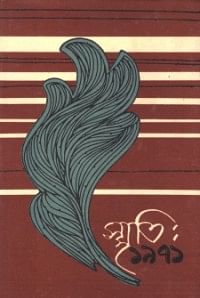Victory Day in Calcutta*

After the news reached Calcutta of Dhaka's surrender there began victory celebrations. Thousands of people congregated at Theatre Road (where was housed the Provisional Government of Bangladesh). Spontaneous victory parades and marches came out joyously on roads and streets. Various leading figures and luminaries of West Bengal political parties, cultural and social organizations rushed over to Theatre Road to congratulate the leaders of the Provisional Government. During the whole nine months of the war the area of Theatre Road had been a security zone. Tajuddin's status had been like that of a secret refugee. But with the announcement of the fall of Dhaka, this secretiveness melted away in a flood of joy and celebration. Standing on the upper-storey verandah of the house at No. 8 Theater Road, Syed Nazrul Islam and Tajuddin Ahmed acknowledged the congratulations and gave thanks to a jubilant crowd by waving their hands. Calcutta's journalists and foreign correspondents jammed at Theatre Road. Sunlight sparkled on the whole area: A light that spread throughout the whole world--the joyous news of the liberation of a nation.
At Theatre Road there convened an emergency meeting of the cabinet members of the Provisional Government. Directives about the institutional and governmental reconstruction began to be transmitted to a free Bangladesh. After Jessore had been liberated on 7 December, 19 Zilla Administrators had been appointed in the country's 19 free zillas. The government had completely collapsed. Banks had been closed from 3rd December onwards. Factories and post offices had stopped functioning. The directives were being broadcast over Swadhin Bangla Betar, which was also being helped in this task by Akash Barta Calcutta. The fear of the Provisional Government was that Bengalis, having undergone war and oppression for nine months, had hatred in their hearts, and if this hatred turned into a bloodlust for revenge then the consequences could be severe--foreign states would not grant recognition to the new government was the chief concern. The Provisional Government had decided on the modalities of war crimes trials of Pakistani soldiers. Clear orders were issued to the Mukti Bahini to be on maximum alert against all those inclined to take the law into their hands. The Provisional Government was further worried about another development. Youths were now roaming in Dhaka armed with Chinese rifles. After surrendering the Pakistani army had abandoned these weapons hastily. Besides the guns of the 84,000 regular guerrillas of the Mukti Bahini and the 10,000 members of the Mujib Bahini, the irregular bands of guerrillas who were now inside the country were also armed. And then there were arms in the hands of the collaborators of the Pakistan Army, the Razakars, who numbered between 60- to 70,000. Towards the end of the war, the Pakistan Army had freely distributed arms among them. Until these arms were recovered Dhaka could not be declared safe. The Provisional Government wanted to return posthaste to Dhaka, but the Indians had informed them that until full military control had been established in the city it would not be safe for the members of the Provisional Government to proceed there. If the situation improved in three or four days then the cabinet members would be flown there. On 18th December a group of Awami League officers from the Calcutta secretariat were flown to Dhaka. Several more were sent on the 19th. These officers, upon their arrival in war-torn Dhaka, immediately set about their task after setting up office in the central Secretariat building...

 For all latest news, follow The Daily Star's Google News channel.
For all latest news, follow The Daily Star's Google News channel. 



Comments